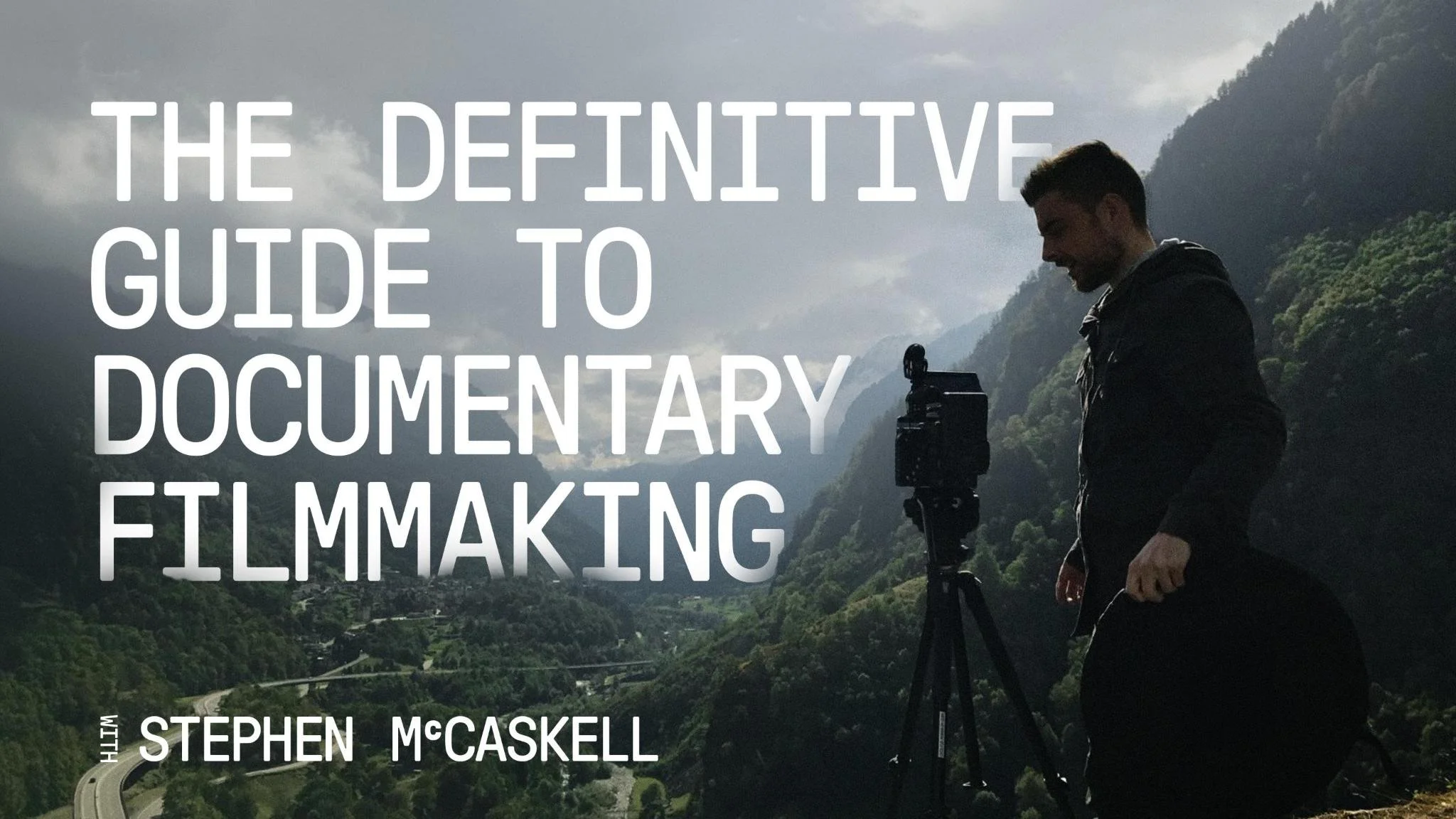The Power of Documentary Storytelling: Why Your Story Matters
Why I Make Documentaries (and Why You Should Too)
In a world saturated with content, I believe documentary filmmaking stands apart as one of the most powerful mediums for creating lasting impact. Unlike fleeting social media posts or quickly consumed news articles, a well-crafted documentary can transport viewers into another reality, challenge perspectives, and inspire meaningful change.
More Than Just Recording Reality
When I first started, I, like many aspiring filmmakers, thought documentary filmmaking was just about pointing a camera at something interesting and capturing what unfolds. But the truth is far more nuanced. A documentary is a carefully constructed form of storytelling that explores truth, tension, and meaning through a visual lens.
You’re not just showing what happened; you’re helping people see why it matters. That distinction has become central to how I approach every film I make. Documentary filmmaking isn’t just documentation, it’s interpretation, curation, and storytelling with purpose.
Filming the episode on Amy Carmichael in Tokyo, Japan
The Unique Impact of Documentary Films
What draws me to documentaries is their ability to carve out space for reflection in a world that’s constantly demanding reaction. In a culture addicted to speed and stimulus, documentaries invite us to slow down and engage deeply with complex realities.
Consider the impact of some films that have shaped public consciousness:
Blackfish didn’t just inform—it catalyzed real change at SeaWorld.
The Social Dilemma turned abstract digital concerns into dinner table conversations.
Free Solo wasn’t just about climbing—it reshaped how we think about risk, obsession, and human potential.
These films didn’t just present facts, they created emotional connections that helped people feel the weight of the issues.
Finding My Voice and Helping You Find Yours
The most compelling documentaries I’ve made began with a deep personal connection to the story. Before I ever pick up a camera, I ask myself: Why this story? Why now? Why me?
Documentary filmmaking demands commitment. You’ll live with your subject for months or even years. Without a meaningful connection, it’s hard to sustain the energy required to finish. I’ve learned to ask:
What’s the core question driving this story?
What change or resolution am I hoping to capture?
What’s at stake: for the subject, for the viewer, and for me?
Will I still care deeply about this two years from now?
These questions have saved me from investing in ideas that weren’t ready, or weren’t right for me.
From Subject to Story
One of the most common pitfalls I see, both in myself early on and in other filmmakers, is mistaking a subject for a story. A subject is static: a person, place, or idea. A story has motion: conflict, transformation, and stakes.
For example, “the art of mixology” is a subject. “Why this mixologist risked everything, and what it taught me” is a story. That shift turns something observational into something personal, emotional, and universally resonant.
As filmmakers, our job is to take something that happened and show why it matters.
Storytelling with Integrity
With the power of storytelling comes responsibility. I’ve been trusted with people’s most vulnerable moments. I’ve had to make hard calls about what footage to include and what to leave out, not because it wasn’t good, but because it didn’t serve the story ethically.
Sometimes, the right thing to do is not include the most compelling footage. Telling a story with integrity means:
Building real trust with your subjects
Being transparent about your intentions
Respecting the dignity of everyone on camera
Constantly asking whether your choices honor the truth or just chase drama
Every Story Needs Structure
Yes, documentaries often evolve during production, but I’ve learned the best ones still begin with a strong framework. Structure doesn’t mean rigidity. It means clarity of intent and openness to discovery.
The process typically unfolds in five phases:
Development – Where you dream, research, and refine your vision
Pre-Production – Where the logistics come into play: scheduling, budgets, planning
Production – Where you gather the story in the field
Post-Production – Where the magic of editing brings it all together
Distribution & Impact – Where your film finds its audience and makes a difference
Each phase matters. Each phase builds toward the next. And understanding this structure helps you keep momentum when the inevitable challenges arise.
Your Story Matters
We’re living in a golden age for storytellers. The tools are accessible. The audiences are global. What sets powerful documentaries apart isn’t gear or budget: it’s vision, honesty, and the courage to go deep.
If there’s a story you feel pulled to tell, lean into that. Give it structure. Give it care. And tell it with intention. Because your perspective matters. And your story deserves to be told.
The Definitive Guide to Documentary Filmmaking is out now.

